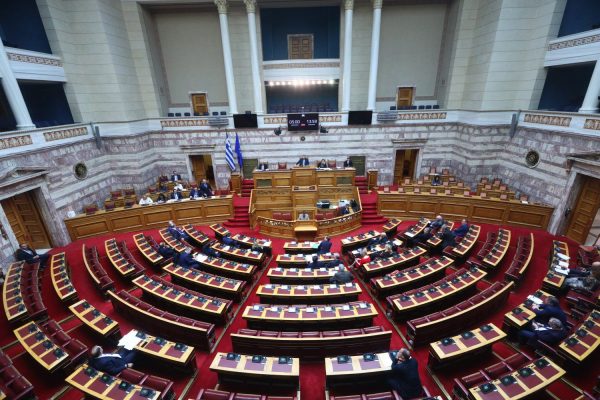
Despite the mounting banking turmoil and calls for pausing interest rate hikes, both the European Central Bank (on 16 March) and the Federal Reserve (on 22 March) raised their interest rates. This was the right decision. I expect the Bank of England to follow suit.
Some observers emphasised that a pause in interest rate hikes could have been interpreted as central banks worrying about the health of the banking system, which might have undermined the trust in banks further.
There would have been an even more crucial medium-term concern with a pause: yielding to mild signs of banking troubles to give up the fight against inflation, when it is 3-4-times larger than the 2% target and labour markets are strong, would have undermined the trust in the central bank’s determination to keep inflation under control. That could have resulted in an increase in inflation expectations and increased uncertainty about the duration of the current inflation surge, potentially resulting in a more lasting and painful adjustment.
Current banking troubles are concentrated on isolated banks, such as the Silicon Valley Bank in the US, which had a risky business model and inadequate risk management processes, and Credit Suisse, which was subject to money laundering, corruption and spying scandals, made a big loss in 2022, and was expected to make losses in 2023 too. When deposits were evaporating from Credit Suisse, other banks, such as UBS and Deutsche Bank, reported unusually high deposit inflows, suggesting that the trust in a few specific institutions was undermined, but not in the banking system as a whole. European banks do not suffer from the problems of the Silicon Valley Bank and Credit Suisse, while tightened banking regulation and bank supervision since the 2008 global financial crisis made banks more resilient. The same applies to large US banks.
Inflation remains stubbornly high, while unemployment remains close to historical lows. While the ECB has revised its headline inflation forecast for 2023 down from 6.3% in its December forecast to 5.3% in its March forecast –most likely due to the unexpected fall in energy prices over the past three months–, it revised its core inflation forecast (which excludes volatile energy and food prices) up from 4.2% to 4.6%. The employment growth forecast for 2023 was revised upward (from 0.4% to 0.8%), while the unemployment rate forecast was revised downward (from 6.9% to 6.6%).
The ECB’s main deposit interest rate had just reached 3% when the latest February headline inflation figure was 8.5% and core inflation was 5.6%. In most past monetary tightening episodes, the central bank’s interest rate was raised to above inflation. This time, it is still much lower than that.
Thus, the time of isolated banking problems, high inflation, low unemployment, and so-far feeble interest rate hikes is not the time to pause monetary tightening.
Zsolt Darvas
Senior fellow, Bruegel
Latest News

Everything to Know about Store Hours this Holiday Season
Stores and supermarkets across the country are operating extended hours, offering ample opportunities for holiday shopping

Greece Prepares for State Budget Vote as Debate Reaches Final Stages
Prime Minister Kyriakos Mitsotakis is expected to deliver his remarks late in the evening, shortly before the decisive vote that will conclude the session

DM Dendias: We talk With Turkey But We Always Bring Up Their Unacceptable Positions
Second and last day of closely watched conference, entitled 'Metapolitefsi 1974-2024: 50 Years of Greek Foreign Policy', also included appearances by PM Mitsotakis, Ex-PM Tsipras and PASOK leader Nikos Androulakis, among others

Rhodes Airport Tops Fraport Greece’s Regional Airports in 2024 Performance
According to Fraport's data, more than 35 million passengers (specifically 35.2 million) were handled by Fraport-managed airports during the 11 months.

European Central Bank Cuts Interest Rates by 25 Basis Points
It is the fourth cut of interest rates by Europe’s central bank, a move expected by the markets and financial analysts leading to the rate settling at 3%.

Airbnb: New Measures Add €600 in Extra Costs for Property Owners
Property managers face an immediate administrative fine of 5,000 euros if access to the inspected property is denied or any of the specified requirements are not met.

Economist: Greece Included in the Best Performing Economies in 2024
Meanwhile, Northern European countries disappoint, with sluggish performances from the United Kingdom and Germany.

EasyJet Expands Its Routes from Athens
The airline’s two new routes will be to London Luton and Alicante and they will commence in summer 2025.

Capital Link Forum Highlights Greece’s Economic Resurgence; Honors BoG Gov Stournaras
Capital Link Hellenic Leadership Award recipient, Bank of Greece Gov. Yannis Stournaras, an ex-FinMin, was lauded for his pivotal role during Greece’s economic recovery

Tourist Spending in Greece Up by 14%, Visa Card Analysis Shows
Greece’s capital Athens emerged as the most popular destination, recording a 17% increase in transactions with Visa cards, surpassing even the cosmopolitan island of Mykonos.



![Φυσικό αέριο: Δυναμικό come back του LNG στην Ελλάδα [γραφήματα]](https://www.ot.gr/wp-content/uploads/2023/01/OT_naturalgas-90x90.jpeg)











![Fraport: Πάνω από 35 εκατ. επιβάτες στα αεροδρόμια το 11μηνο – Πτώση στη Μύκονο [πίνακας]](https://www.ot.gr/wp-content/uploads/2022/06/fraport-90x90.jpg)










![Χριστουγεννιάτικο τραπέζι: Ακριβότερο φέτος κατά 10% σε σχέση με το 2023 [πίνακας]](https://www.ot.gr/wp-content/uploads/2022/12/xristoygenniatikotra-600x399.jpg)















 Αριθμός Πιστοποίησης Μ.Η.Τ.232433
Αριθμός Πιστοποίησης Μ.Η.Τ.232433